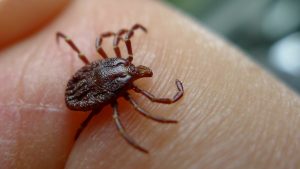
If you have listened to the news recently, you may have heard reports of the East Asian tick being found in the United States. This is a new species to the area, and it has been found in New Jersey. It is invasive and has not responded to efforts to eradicate it before it established itself.
Where Is the East Asian Tick in the United States?
Currently the tick is only in New Jersey in the United States. Experts are not sure how the tick made its way to the United States. It was first found by a new Jersey sheep farmer last fall. Currently, there are no known instances of the tick outside of New Jersey. However, this is considered a highly invasive species and eventually they will likely spread to other areas of the United States. It has proven to be a problem in Australia.
Why Is the East Asian Ticks Considered Deadly?
The East Asian tick is a known carrier of the STFS virus. At this time, this virus is only found in Asia. It begins as a fever with vomiting and diarrhea. It can affect the platelet count, white blood cell count and the level of liver enzymes in a patient. It can also lead to multiple organ failure. Since it is a virus, treatment focuses on managing systems. The mortality rate of the disease is twelve percent. The disease can be passed through bodily fluids too.
What Are the Chances of This Coming to the United States?
The concern is that since the ticks have reached the United States, that if the virus makes it way over to the United States, that it will have the chance to easily spread throughout the United States. The virus was first discovered in 2009, and more and more cases are reported each year. No one is certain when or how the virus will make it to the United States, but it is a possibility.
Is There a Way to Prevent Tick Bites?
There are steps to take to prevent tick bites. There are a number of ticks already established in North Carolina that can spread serious illnesses like Lyme disease. The issues are even worse this year because a record tick season is expected. You can prevent tick bites in your yard by having it treated for ticks. Wearing insect repellent with DEET when you go into areas with ticks can also help.

 Fill out the form below and we'll do our best to get you the answer! Or just call us!
Fill out the form below and we'll do our best to get you the answer! Or just call us! 

 If you’re unsatisfied with the treatment in any way, we have a 100% money back guarantee. So there is no risk to you!
If you’re unsatisfied with the treatment in any way, we have a 100% money back guarantee. So there is no risk to you!